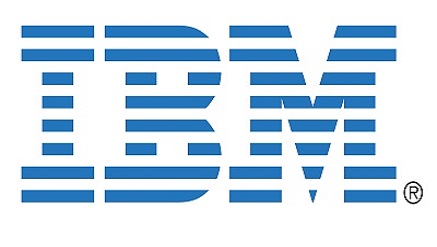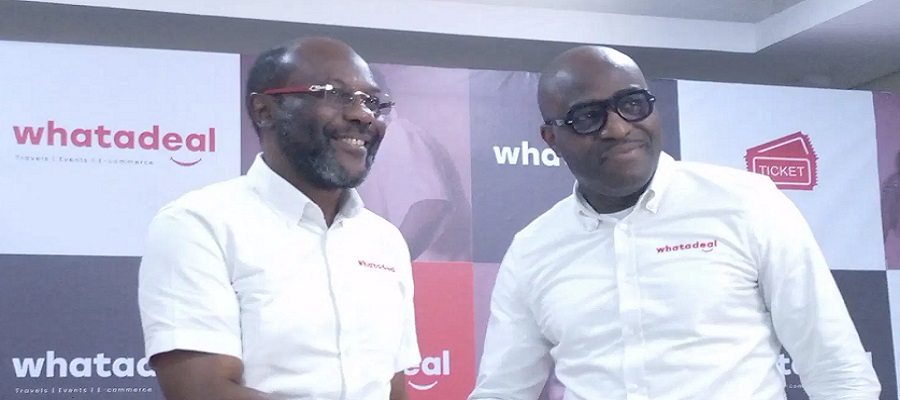E-Business
IBM Supports Mobile Economy with Z13 Mainframe Computer Launch

IBM, notable for its innovative capabilities, is combining a couple of odd computing with the new trends, following a new machine that combines the mainframe, the old workhorse, and the smartphone, launched on Wednesday.
Apparently, IBM designed the latest version of the mainframe with the smartphone in mind.
The new mainframe, the z13, has been engineered to cope with the huge volume of data and transactions generated by people using smartphones and tablets.
“This is a mainframe for the mobile digital economy,” said Tom Rosamilia, senior vice president in charge of IBM’s systems business, which includes mainframes. “It’s a computer for the bow wave of mobile transactions coming our way.”
IBM brings out a new mainframe about every three years, and the success of this one is critical to the company’s business.
Mainframes alone account for only about 3 percent of IBM’s sales.
But when mainframe-related software, services and storage are included, the business as a whole contributes 25 percent of IBM’s revenue and 35 percent of its operating profit, estimates A.M. Sacconaghi of Bernstein Research, as reported by Cyberoption.Net blog.
Over the years, IBM has done a good job of revamping the mainframe to handle new workloads.
Modern mainframes, for example, run a lot of open-source software, like the Linux operating system.
Today, though, IBM is in the midst of a transition challenge, it is investing to build large, growing businesses in new areas like cloud computing, big data analytics and mobile applications for corporations.
But those fields have not yet grown fast enough to make up for the erosion in some of its hardware, software and services offerings.
The mainframe is not a growth market for IBM.
But maintaining the mainframe franchise is a strategic imperative for IBM, giving it financial ballast and time as it pursues new opportunities.
“Ensuring the relevance of the mainframe, and with it deep ties into so many major corporate accounts, is crucial to IBM,” Sacconaghi said.
The new mainframe, Rosamilia said, has a host of technical improvements over its predecessor, including three times the memory, faster processing and greater data-handling capability.
IBM spent $1 billion to develop the z13, and that research generated 500 new patents, including some for encryption intended to improve the security of mobile computing.
Much of the new technology, Rosamilia added, is designed for real-time analysis in business. For example, he said, the mainframe system can allow automated fraud prevention while a purchase is being made on a smartphone.
Another example, he said, would be providing shoppers with personalized offers while they are in a store, by tracking their locations and tapping data on their preferences, mainly from their previous buying patterns at that retailer.
These real-time applications, according to Donna Dillenberger, a distinguished engineer at IBM’s Watson lab, can be done in a mainframe environment.
They are not yet possible on clusters of smaller, industry-standard computers, she said. But there are several open-source software projects, like Apache Spark, that focus on real-time data processing across large numbers of computers.
Mobile computing is certainly accelerating the data-handling and transaction-processing challenges for businesses of all kinds.
The volume of purchases made on smartphones and tablets in the United States, estimated at $114 billion last year, is projected to more than double to $293 billion by 2018, according to Forrester Research.
That kind of growth trajectory in America and elsewhere is largely attributable to the popularity and steadily improving capabilities of mobile devices.
But the simplicity of a tap-and-swipe mobile computer also contributes to the complexity of the computing tasks a user never sees when, for example, making an online purchase.
A single consumer action can set off four to 100 computing transactions — with information sent securely — like confirming an identity or authenticating a credit card.
Howard Rubin, an independent analyst, calls this the “starburst effect.” The advance of mobile computing, he noted, leads to “a surge of back-end transactions.”
In developing the z13, IBM worked with 60 companies and government agencies, mainly longtime mainframe customers.
But IBM won a convert in Ronald J. Peri, chief executive of Radixx International. Radixx, based in Orlando, Fla., runs the computerized reservation systems for 40 airlines, mostly smaller and midsize carriers outside the United States.
In the late 1980s, while working for an insurance company, Mr. Peri was an early advocate of moving off mainframes and onto networks of personal computers. An article from that time in The Wall Street Journal cited Mr. Peri as being in “the vanguard of a revolution” against the high-priced tyranny of mainframe computing.
Today Mr. Peri is shifting the back-end computing engine in the Radixx data center from a cluster of industry-standard servers to a new c.
After testing out the mainframe, he has been impressed by its performance, security and even cost. He estimates the total cost of ownership including hardware, software and labor will be 50 percent less with a mainframe than on his “sprawling server farm,” given the growing complexity of managing hardware and software from several suppliers.
“We kind of rediscovered the mainframe,” Mr. Peri said.
E-Business
SystemSpecs’s Subsidiary Deelaa Becomes Whatadeal

SystemSpecs Holdings Ltd unveiled at the weekend the rebranding of its subsidiary Deelaa to Whatadeal, launching an ambitious digital commerce platform poised to transform travel, events, and e-commerce across Africa.

John Obaro, group managing director, SystemSpecs, and Fela Bank-Olemoh, managing director of Whatadeal
The announcement comes amid a surging demand for integrated digital services in Nigeria and beyond, as the continent’s e-commerce and travel sector stand on the cusp of exponential growth.
The launch event, held in Lagos, demonstrated SystemSpecs’ vision for a seamless, value-centric consumer experience.
This strategic rebrand follows the company’s acquisition of Knit Technologies, amalgamating cutting-edge innovation and industry expertise into Whatadeal—one of four subsidiaries under the SystemSpecs umbrella.
John Obaro, group managing director, SystemSpecs, emphasized that the transformation reflects an unwavering commitment to technological advancement and customer empowerment.
“Whatadeal transcends a mere rebranding—it embodies a dynamic ecosystem designed to deliver unparalleled value and memorable experiences,” Obaro told reporters.
He elaborated, “Our ambition is to ensure that whether you’re organizing an event, procuring tickets, or seeking the finest deals, Whatadeal is your definitive destination. We are also in advanced discussions with leading travel industry players to curate exceptional travel experiences across Nigeria.”
Originally introduced in 2022 as an e-ticketing and marketplace platform, Deelaa catered to both businesses and consumers.
Its evolution into Whatadeal responds to shifting market dynamics, offering an integrated solution for booking flights, securing event tickets, and shopping online.
The platform will be powered by Remita, SystemSpecs’ acclaimed electronic payment and collection system, which underpinned Nigeria’s Treasury Single Account initiative—one of the most extensive implementations of its kind in Africa.
Steering this venture is Fela Bank-Olemoh, managing director of Whatadeal and a SystemSpecs stalwart since 1998.
With over two decades of expertise spanning technology, marketing, and public service, Bank-Olemoh brings a formidable pedigree to the role.
He founded MediaVision Limited, a preeminent sports marketing firm in Nigeria, before serving as Special Adviser on Education to the Lagos State Governor from 2015 to 2019 and later as Senior Special Assistant on Education Interventions to Nigeria’s President from 2019 to 2023.
Bank-Olemoh articulated the platform’s ethos: “At Whatadeal, we hold that exceptional experiences and valuable offers should be effortless, not convoluted. Our mission extends beyond merely facilitating deals—we are cultivating an ecosystem that nurtures engagement, trust, and enduring value for our customers.”
He added, “Whether you’re arranging travel, acquiring event tickets, or purchasing essentials, you deserve an intuitive, rewarding experience that consistently delivers excellence. Whatadeal is dedicated to realizing that vision.”
SystemSpecs aims to establish Whatadeal as the preeminent one-stop platform for African consumers, blending convenience with competitive offerings.
With its fusion of Knit Technologies’ innovations and Remita’s robust infrastructure, Whatadeal is poised to redefine digital commerce on the continent.
E-Business
Cybersecurity Firm Says It’s Time to Back it Up, As the World Marks World Backup Day

How much do you trust your device memory? Definitely more than you should. According to the statistics only 33% of users back up their data regularly, and more than 77% of people have already experienced data loss.

An annual tradition which started as a simple reddit post back in 2011, World Backup Day is celebrated on 31st March 2025 to provide a reminder of the importance of backing up data. To mark the occasion, Kaspersky shares practical advice on how to create new beneficial digital habits to ensure your backups are safe.
The first question that should be taken into consideration is: what exactly needs to be backed up? The answer seems to be lying on the surface.
The more you back up – the better. Work-related documents, family photos, financial info, health records, logins and passwords, and even content shared within messengers. In fact, all of this needs to be backed up using reliable storage methods.
There are several reasons why it is recommended to copy as much data as you can.
First of all, the device on which the information is stored may simply be lost, stolen or damaged. For example, UK’s South Western Railway reports that at least 5 smartphones are lost per day on its network, which is almost 1800 devices per year.
Among other potential threats to data safety are ransomware attacks. This is a type of malware that blocks a computer and then demand a ransom for its release. In some cases, even paying the ransom does not help to restore data on an infected device.
Despite these substantial risks, in everyday life it’s almost impossible (and to some extent pointless) to back up everything. Our devices contain gigabytes of information, most of which has no value. Creating backup storages of such a scale is time-consuming and expensive.
The main advice is to rank data correctly. Try to assort the items needing to be backed up by evaluating their relevance, recency and recovery options.
If a file, record or password is outdated or may be replaced by a newer version, backup may be safely ignored. If it is a new or highly valuable piece of information, backing up is necessary and preferably there should be more than one copy.
The art of backup
The next step towards data loss prevention is finding the suitable backup method to select. Obviously, it depends on multiple factors: type of data, type of device, pricing, user’s personal preferences and habits.
The most popular backup options are generally cloud or external storage services. Both of these methods have their pros and cons. For example, cloud services give you instant access to information wherever you are, but they require regular subscription payments.
At the same time, external hard drives are reliable storages which only require one payment, but access to information on these devices is only possible when they are at hand.
Therefore, cloud storage is regarded as the perfect option for storing files and photos which should always be available in a few clicks, while external storage services are suitable for data archives and huge files, such as movies or videos which you rarely use. Overall statistics show that nowadays most people choose cloud technology as their main storage option.
Specific data such as passwords, ID or financial details require even more secure storage methods.
Among the potential solutions password manager is an option that protects sensitive personal information, prevents its loss and provides immediate access to it at any time. Automatic filling of authentication and banking data means users do not have to memorise important information and reliably protects data from being compromised.
While choosing backup and storage options it’s highly recommended to consider all the aspects. To get backing up into a real habit, the method should not only be reliable and effective, but also suitable and convenient for you personally.
Enhanced protection
As it has been already mentioned, single manual backup might not be enough to protect data from being lost. World Backup Day is the right time to remember that data might be vulnerable and take some proactive steps to secure it. Kaspersky has created some tips on how to do it effectively:
- Follow the rule 3-2-1. One of the most popular backup strategies is to have at least 3 copies of important data, store it on 2 different storage types, and make at least 1 copy off-side (cloud or external physical location).
- Set up automatic backups. Most devices and services have a preinstalled backup function, which automatically creates a backup if you forget to make a copy in time.
- Use a reliable security solution. Comprehensive digital protection with a specific anti-ransomware protection mechanism, such as in Kaspersky Premium, prevents device infection and protects your data from both local and remote-access ransomware attacks.
- Make regular checks. It’s necessary to test your backups workability on a regular basis to notice the malfunction in time and fix it.
E-Business
FG Launches Online Visa Approval Centre

Dr. Olubunmi Tunji-Ojo, minister of Interior, has announced the launch of an Online Visa Approval Center to eliminate bureaucratic bottlenecks and reduce corruption in the visa application process.

Commissioned by the President in December, the new system ensures that applicants no longer need to visit a visa office, know anyone in the system, or lobby for approvals.
At a stakeholders’ sensitisation workshop on the implementation of the Nigeria Visa Policy (NVP) 2025, yesterday in Abuja, Dr. Tunji-Ojo said the visa is considered a very important document by the government because it is an instrument of migration management and an instrument of economic development.
The minister explained that Nigeria has to strike a delicate balance between national security and, of course, the ease of migration.
“And we think that it’s something that we can do and something we will do.
“We don’t have a physical Visa Approval Center. If you apply for a Nigerian visa anywhere in the world, you do so online. We process it here in Nigeria, and if approved, you receive your e-visa in your email,” he explained.
To enhance efficiency, the government has set a 48-hour deadline for processing e-visas.
“It is unprofessional and unacceptable for the Nigeria Immigration Service not to approve or provide feedback within 48 hours,” the minister stated.
“It breaks my heart that people need to lobby to even get visas to Nigeria. It shouldn’t be so. It shouldn’t be.
“For anybody that is qualified, for anybody that wants to do legitimate activities in Nigeria, such people should be able to come to Nigeria easily. And this is why we are opening our space. Mr. President is interested in foreign direct investments.”
Further, he said Nigeria is interested in partnering with the rest of the world to develop its economy but, “We can’t do that when we allow bottlenecks to hold us down. So these reforms, basically, are aimed at opening our space, enhancing national security, and we hope that the primary responsibilities of the visa scheme will be achieved.”
Kemi Nandap, controller general, Nigeria Immigration Service (NIS), said the NIS would fully digitize its e-visa platform and reduce visa classifications from 79 to 44 to enhance accessibility, transparency, and efficiency in the new visa policy.
She said, “At the core of this policy is the new e-visa platform—a fully digitized, centralized system that revolutionizes how foreign nationals interact with our country’s entry procedures. As part of this transformation, the Nigerian Visa Policy 2024 underwent a comprehensive review, resulting in a significant reduction in visa classifications from 79 to 44.
“These categories have been logically grouped to simplify procedures, reduce complexities, and greatly improve the user experience. Importantly, we have maintained the original purpose and intent of each visa class throughout this reform.”

 Telecom3 days ago
Telecom3 days agoIHS Nigeria Hosts Telecom Industry Stakeholders to Discuss Protection of Critical National Infrastructure in Lagos State

 E-Financial3 days ago
E-Financial3 days agoTitan Trust Bank Selects Oracle FSS for Core and Digital Banking Technology

 General News3 days ago
General News3 days agoNCS to Launch Electronic System for Cash Declarations at Airports

 News3 days ago
News3 days agoSanwo-Olu Hails Jumia for Giant Strides in Growing Nigeria’s E-Commerce Sector

 Telecom3 days ago
Telecom3 days agoMTN Champs Continental Relays: Over 1,000 Athletes Gear Up for Lagos Showcase

 E-Financial3 days ago
E-Financial3 days agoIMF Appoints Elumelu, Nigerian Businessman to Advisory Council

 General News3 days ago
General News3 days agoAquaterra Energy Secures Multi-million-dollar well Intervention Contract with Intrepid Energy in Nigeria

 Telecom14 hours ago
Telecom14 hours agoSmart Treasure Investment Team’s Initiatives Eradicate Poverty, Says Aminu















